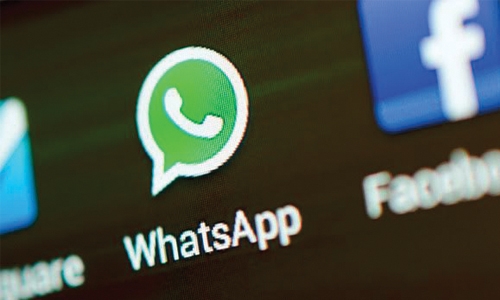WhatsApp users warned against cyber hackers
Manama : WhatsApp users have been warned to restart their web browsers after a report of a security flaw that put millions of users at a risk of complete account takeover.
The security flaw that affected web users of the popular application, allowed cyber criminals to access personal data including photos, contacts and videos in a matter of seconds.
Hackers sent a maliciously coded image to multiple WhatsApp users and once the image had been downloaded, the code infiltrated the computer, granting hackers full access to the WhatsApp account. The cyber criminals could then take over multiple accounts through the hacked user’s contact list.
“It is understandable that security issues rise when an application is used through multiple platforms, leaving scope for vulnerabilities. These allow criminals to remove data from the users’ devices, but the risk is doubled if WhatsApp web is used on enterprise desktop machines with full access to company data,” said Jassim Haji, Bahrain’s leading tech expert.
Suggesting ways of avoiding such security threats, he said: “The best option to avoid such risks is to invest more time and effort in assessing the security of your products at every stage in the development cycle. Another option is engagement of programmes between the organisations and the ethical hackers when they are invited to test the application security by performing controlled attacks to identify similar vulnerabilities before the products are released in public.”
Dr Haji, however, emphasised on the users taking up responsibilities themselves and updating latest cyber security features so that they can remain safe. Ravi Jayasundera, CEO of Sysprove Consulting echoed similar sentiments, stating users were often the culprits as they failed to take necessary precautions while sharing data on the web.
It is important that users ensure pop-ups are blocked, the browser is updated, apps are downloaded from app stores rather than unauthorized links and two factor authentication is activated on all social media accounts, he said.
He urged extra care in opening images, movies or links sent by unknown origins in cell phones, and in web applications, clicking on links that come through phishing emails or visiting web sites which may have malicious codes.
Related Posts

